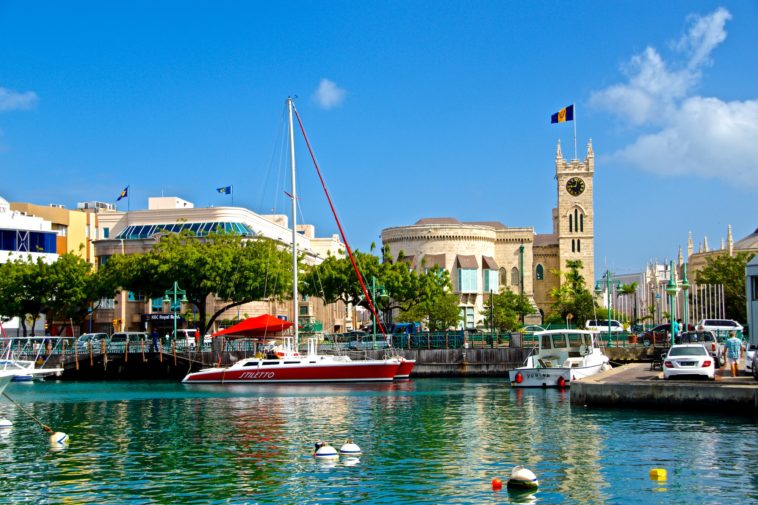Barbados, an independent island country located in the Caribbean Sea, has been a focal point for researchers, policymakers, and investors for a myriad of reasons. From its thriving tourism industry to political stability, Barbados offers a unique blend of opportunities and challenges that require intricate balancing. This article provides a comprehensive analysis of the key factors impacting Barbados, including its economy, social structure, environment, and political landscape. The discussion will also delve into the trade-offs involved in balancing these different factors and explore the challenges associated with different approaches.
General Overview of Barbados
| Feature | Information |
|---|---|
| Longitude and Latitude | 13.1939° N, 59.5432° W |
| Climate | Tropical monsoon |
| Population | Approx. 287,025 (2021) |
| GDP | $5.207 billion (2019) |
| Continent | North America |
Economic Factors
Tourism Industry
The backbone of Barbados’ economy is its tourism industry. Generating a large share of the nation’s GDP, tourism is an area that policymakers pay keen attention to. However, this dependency makes the economy vulnerable to global economic downturns and natural disasters. Balancing tourism with other sectors is a critical challenge for sustainable growth.
Trade-offs
- Pros: Foreign exchange earnings, employment opportunities
- Cons: Environmental degradation, cultural erosion
Manufacturing and Agriculture
Although much smaller compared to tourism, manufacturing and agriculture sectors exist but are limited due to scarce natural resources. Policymakers face the challenge of diversifying the economy without compromising the existing successful sectors.
Trade-offs
- Pros: Diversification, self-reliance
- Cons: Strain on limited resources, potential decline in tourism
Offshore Financial Services
Barbados also benefits from its offshore financial sector. This, however, raises ethical questions and makes the nation susceptible to changes in international regulations.
Trade-offs
- Pros: Increase in foreign capital
- Cons: Regulatory scrutiny, potential for financial crimes
Social Factors
Quality of Life
Barbados ranks high in terms of quality of life in the Caribbean, attributable to good healthcare and education systems. However, maintaining this requires sustained public investment.
Trade-offs
- Pros: Social wellbeing, human development
- Cons: Budgetary pressure, possible neglect of other sectors
Demographic Challenges
With an aging population and a low birth rate, Barbados faces demographic challenges that could have long-term implications on the labor force and social welfare systems.
Trade-offs
- Pros: Mature and experienced workforce
- Cons: Healthcare costs, social security burden
Environmental Factors
Climate Change
Being an island nation, Barbados is susceptible to the impact of climate change, especially sea-level rise and hurricanes. Mitigating these requires international cooperation and significant investments in infrastructure.
Trade-offs
- Pros: Long-term sustainability
- Cons: Immediate economic burdens, reliance on international aid
Natural Resources
Barbados is resource-poor in terms of minerals and arable land, making sustainable management crucial for long-term growth and stability.
Trade-offs
- Pros: Sustainability, long-term gains
- Cons: Short-term economic slowdown, resource constraints
Political Factors
Political Stability
Barbados enjoys a stable political environment with a democratic system. This is advantageous for investment but also places the onus on the government to maintain this stability while addressing internal issues.
Trade-offs
- Pros: Investment-friendly, long-term planning
- Cons: Potential complacency, resistance to necessary changes
Regional and International Relations
Maintaining good relations with CARICOM members and other international partners is essential for Barbados given its reliance on trade and tourism.
Trade-offs
- Pros: Diplomatic support, trade benefits
- Cons: Compromises on national policies, susceptibility to external pressures
Conclusion
The key factors impacting Barbados are multifaceted, each with its own set of trade-offs and challenges. From economic diversification to social welfare, environmental sustainability to political stability, the decisions made in each of these areas carry significant implications. Given the interconnected nature of these factors, a balanced approach that considers long-term impact is essential for the ongoing prosperity and wellbeing of Barbados. This comprehensive analysis aims to provide a foundation for understanding the complexities and trade-offs involved in making decisions about this unique Caribbean nation.





